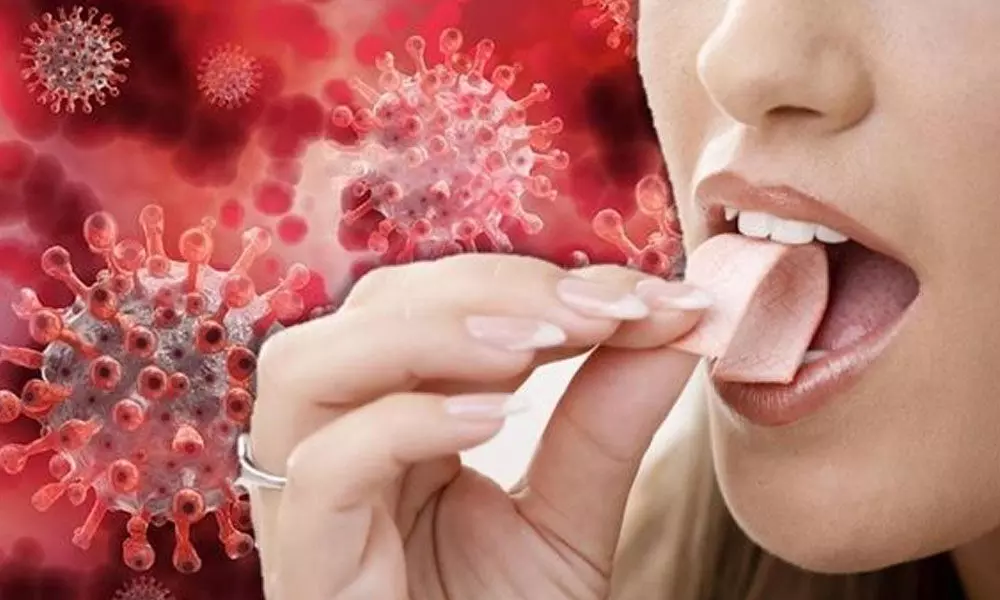Scientists developing chewing gum that may cut Covid spread

Scientists developing chewing gum that may cut Covid spread
Scientists are developing a chewing gum laced with a plant-grown protein that serves as a "trap" for the SARS-CoV-2 virus, which causes Covid-19, reducing viral load in saliva and potentially lowering transmission.
Washington: Scientists are developing a chewing gum laced with a plant-grown protein that serves as a "trap" for the SARS-CoV-2 virus, which causes Covid-19, reducing viral load in saliva and potentially lowering transmission.
The researchers noted that people who are fully vaccinated can still become infected with SARS-CoV-2 and can carry a viral load similar to those who are unvaccinated. "SARS-CoV-2 replicates in the salivary glands, and we know that when someone who is infected sneezes, coughs, or speaks some of that virus can be expelled and reach others," said Henry Daniell at the University of Pennsylvania in the US. "This gum offers an opportunity to neutralise the virus in the saliva, giving us a simple way to possibly cut down on a source of disease transmission," said Daniell, who led the study published in the journal 'Molecular Therapy'.
Prior to the pandemic, Daniell had been studying the angiotensin-converting enzyme 2 (ACE2) protein in the context of treating hypertension. His lab had grown this protein, as well as many others that may have therapeutic potential, using a patented plant-based production system. This system has the potential to avoid the usual obstacles to protein drug synthesis: an expensive production and purification process, the researchers said. The receptor for ACE2 on human cells also happens to bind the SARS-CoV-2 spike protein, which the virus uses to infect the cells, they said. Previous research has shown that injections of ACE2 can reduce viral load in people with severe infections. Another line of work by Daniell and colleague Hyun Koo has involved research to develop a chewing gum infused with plant-grown proteins to disrupt dental plaque. Pairing his insights about ACE2 with this technology, Daniell wondered if such a gum, infused with plant-grown ACE2 proteins, could neutralise SARS-CoV-2 in the oral cavity.
To test the chewing gum, the team grew ACE2 in plants, paired with another compound that enables the protein to cross mucosal barriers and facilitates binding.
The researchers incorporated the resulting plant material into cinnamon-flavoured gum tablets. Incubating samples obtained from nasopharyngeal swabs from Covid-positive patients with the gum, they showed that the ACE2 present could neutralise SARS-CoV-2 viruses. They then modified viruses, less-pathogenic than SARS-CoV-2, to express the SARS-CoV-2 spike protein. The scientists observed that the gum largely prevented the viruses or viral particles from entering cells, either by blocking the ACE2 receptor on the cells or by binding directly to the spike protein. Finally, the team exposed saliva samples from Covid-19 patients to the ACE2 gum and found that levels of viral RNA fell so dramatically to be almost undetectable. The research team is currently working towards obtaining permission to conduct a clinical trial to evaluate whether the approach is safe and effective when tested in people infected with SARS-CoV-2.

















